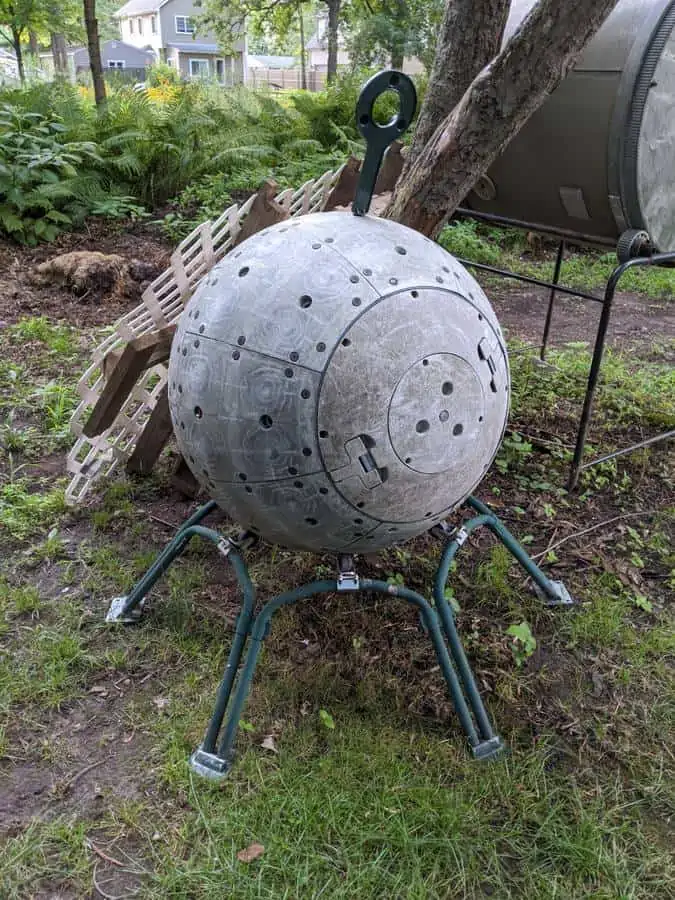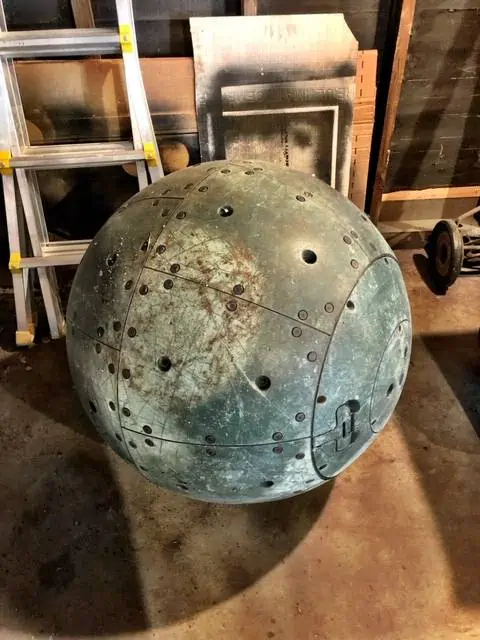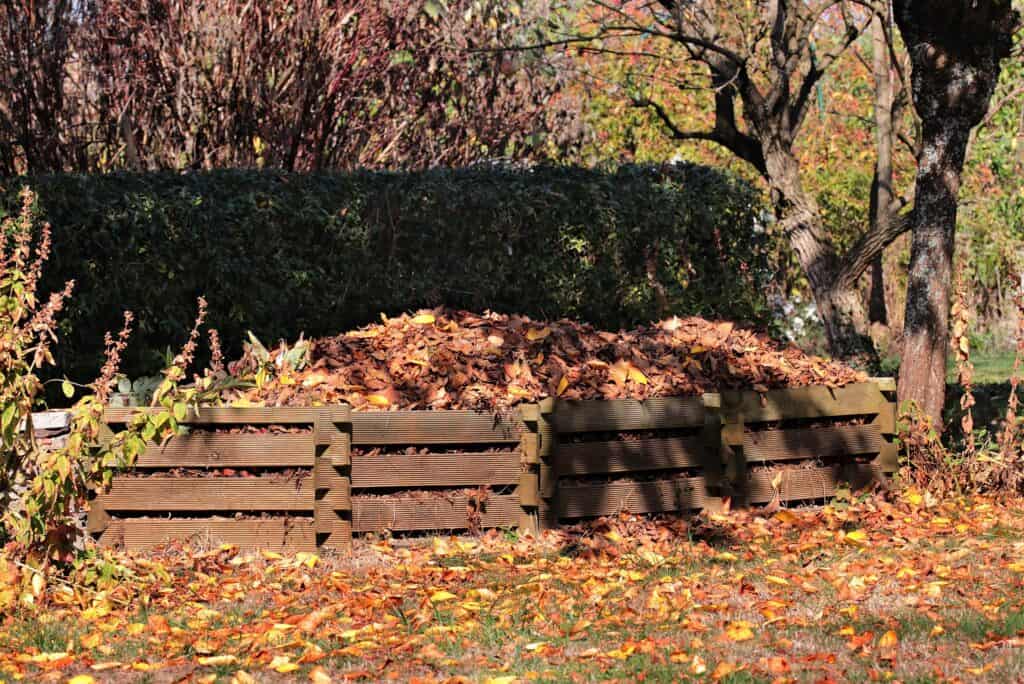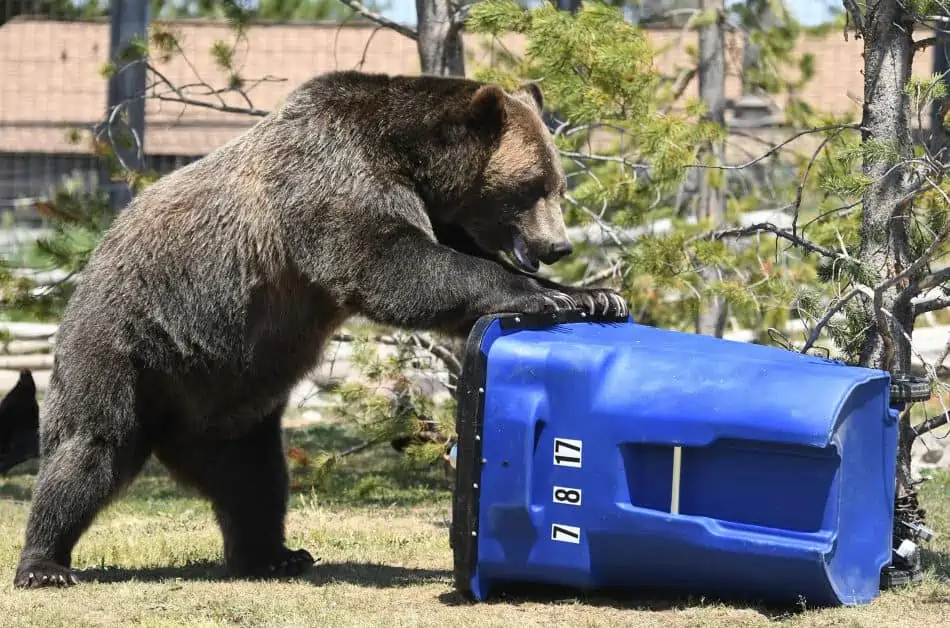As an Amazon Associate I earn from qualifying purchases.
Composting in bear country is a unique experience. The possibility that you might go out one morning and find your compost tumbler torn open like a tin can is not an enjoyable one. An even less enjoyable prospect would be to find a bear mid-rummage through your tumbler or pile when you’re headed out to it with a bucket of food scraps.
While there’s not an easy solution, there are several things you can do to make your compost a bit more bear-proof. Or at least, less likely to be disturbed.
Bears are not generally attracted to compost. If you have a bear problem the most effective thing you can do to deter them is to reduce the smell of your pile by adding extra carbon materials, burying food scraps, and properly aerating your pile.
So, first off, how attractive is your compost to bears? Well, if you’re following good practices to keep your smell down and critters at bay, a bear won’t really be interested in your compost. In fact, over 80% of the disturbances that people experience with bears on their property are related to their garbage (while only 2% are related to compost).
So while compost bins don’t typically attract bears, there can certainly be a point of curiosity for a bear that was drawn onto your land for other reasons. So if you want to keep bears out of your compost keep bears out of your yard, to begin with!
The Best Bear Proof Compost Bin
First off, there is no such thing as a bear-proof compost bin. Now, there might be bins that will keep a bear from getting to the actual compost but, if they are intent enough, they will destroy both your tumbler and the frame to see what’s going on. So anything that claims to be “bear-proof” probably isn’t and you’re far better off simply controlling other factors.
If you have chosen a compost tumbler (as I have) and need to keep bears at bay, there are some best practices that you should follow.
9 Tips To Keep Bears Out Of Your Compost
1. Keep your tumbler “browns-heavy”
Adding browns in a 2:1 ratio to greens will slow your compost down slightly but it will also greatly reduce the smell. Bears don’t usually dig through compost because they smell leaves and twigs.
2. Bury your food scraps deep
The deeper you can get your food scraps in the pile the less they’ll attract bears and other animals. Think in terms of decreasing odor. To that end, you may want to consider covering the top of your pile with leaves (or similar brown material) while it sits.
3. Do not compost meat, dairy, eggs, fish, etc.
While all these things are compostable, they have an increased capacity to attract bears. If you do want to compost them, consider a Bokashi Bucket.
4. Don’t put a bunch of food scraps in an empty tumbler
An empty tumbler is a light tumbler. A friend had the frame of his tumbler bent in half simply because the bear was curious and pushing it around. If it’s full of dirt/compost a bear is less likely to casually give it a toss.
5. Limit sweets in your compost
Bears love sweets and will come straight to your pile if you’ve added something like rotting fruit. You should be cleaning up rotted fruit from your lawn and adding it deep into your pile in small amounts. Throwing it on top or adding too much makes it a bear magnet.
6. Turn your pile regularly
Providing sufficient oxygen for aerobic bacteria will help your pile decompose tasty-looking scraps faster and well far less smell. When your pile goes anaerobic it produces way more methane which can smell attractive to animals and gross to people.
7. Lock your tumbler up
If there are bears already roaming around your neighborhood (or your neighbor’s house attracts them) then you might need to place your tumbler in a shed/barn/etc. While winter composting isn’t very possible where we are we do keep adding scraps to our tumbler and simply place it in a shed where it out of the weather and the reach of hungry bears.
8. Consider adding an electric fence around your tumbler or pile
Some experts even suggest putting some peanut butter on the electric fence you the bear gets a shock and is less likely to return to your yard.
9. Be aware of the type of tumbler you get
Something like an ecocomposter can actually be rolled around your yard and much be opened with a tool so, even if a bear wants in, the most he’ll be able to do is aerate your compost for you.


A good indicator of how attractive your compost pile is is the number of other critters you see visiting it. if you’re receiving visits from other critters such as raccoons, stray cats, squirrels, or rats it’s probably only a matter of time until a bear shows up.
Choosing a Bear-Proof Method of Composting
If you don’t have a tumbler but have a compost pile, the best practices listed above are still your best bet of keeping it safe. There are a few options specific to composting in a pile that can be helpful.
First off, you may want to consider locking up your compost or pit composting. If you use something like a wood-side box to put compost on (like below) you might consider adding a fourth side and a top. Unless a bear is really intent on getting in, simply making it less convenient can be deterrent enough.

Pit composting is an excellent method of hot composting that is both quick and (usually) safe from animal disturbance. Think of it as an old root cellar or storm cellar. You simply dig a hole and add doors or a cover to it.
This type of pile heats up well and stays more active during cold winters. However, it can be more difficult to aerate properly and get compost out of so be sure of your limitations if this is your plan.
If you do want to compost in an open pile you’ll need to be very careful about the types of scraps you are adding. You may want to consider composting food scraps in a tumbler before adding them to your pile or even adding in a method such as Bokashi composting to help reduce the attractiveness of scraps.
Bokashi composting works anaerobically in a sealed container and pickles/ferments your scraps. This makes them significantly less attractive to bears, even if you only leave them in your bucket for a couple of weeks and then add them to your garden.
Something I would not try in my efforts to repel bears is peeing on your compost. While this has several benefits (which we wrote about here) there is very little conclusive evidence that human urine is actually a bear deterrent. In fact, some sources report that your pee might actually attract curious bears. So, until there is some more conclusive evidence, marking your territory might just be off the table.
Conclusion
Most of the methods we’ve described are only necessary if you have a persistent bear issue in your area. For most areas where there are bears, you are totally fine composting normally as they will not be interested in a balanced pile.

